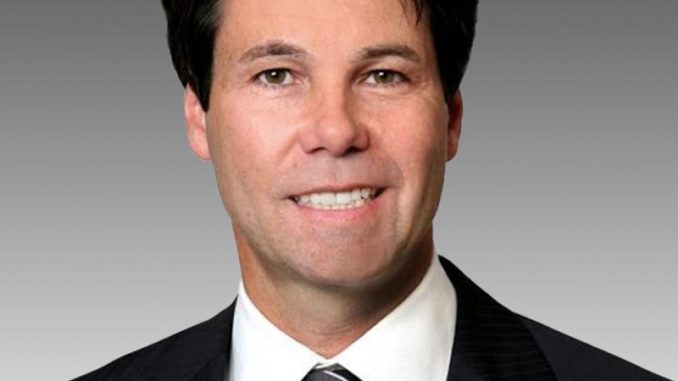
Province Also Marks Start of Construction of Major Redevelopment at CAMH
Ontario is continuing to improve access to mental health and addictions services by expanding psychotherapy programs across the province, which will support more than 100,000 people with conditions such as anxiety and depression.
Marking the beginning of Mental Illness Awareness Week, Dr. Eric Hoskins, Minister of Health and Long-Term Care, made the announcement at the Centre for Addiction and Mental Health (CAMH) in Toronto today, where the province is also celebrating the start of construction on the redevelopment of CAMH’s Queen West site. The CAMH redevelopment involves the construction of 655,000 square feet of new space, which will include 235 inpatient beds, an emergency room open 24/7, research and education facilities, as well as parks and retail space within the surrounding neighbourhood.
As part of Ontario’s commitment to develop a provincewide, publicly funded psychotherapy program, the government is investing in the following proven programs, which will help more than 100,000 people treat mental health conditions such as anxiety and depression:
- In-person individual and group psychotherapy counselling programs coordinated through Ontario’s four speciality mental health hospitals — CAMH, Ontario Shores Centre for Mental Health Sciences, Royal Ottawa Health Care Group and Waypoint Centre for Mental Health Care — in partnership with community-based providers. These programs will be provided through local primary care providers and community mental health agencies, and will also be available remotely through the Ontario Telemedicine Network.
- Bounce Back, a coaching program managed by Canadian Mental Health Association Ontario, which includes telephone support and instructional workbooks that help people learn skills to address problems related to moderate depression and anxiety.
- Online mental health self-management tools coordinated by the Ontario Telemedicine Network.
These programs will roll out across the province over the next three years. People can access these programs and other mental health supports by speaking to their primary care provider, visiting their local community mental health and addictions centre, or by contacting ConnexOntario.
Ontario is increasing access to care, reducing wait times and improving the patient experience through its Patients First Action Plan for Health Care and OHIP+: Children and Youth Pharmacare – protecting health care today and into the future.
Quick Facts
- Ontario’s provincial psychotherapy program – which is being developed with mental health experts, service providers and people with lived experience – will make Ontario the first province to provide publicly funded structured psychotherapy to help people with mild to moderate anxiety and depression.
- Ontario is providing additional funding of $72.6 million over the next three years to support psychotherapy programs. This is part of the province’s $140 million investment in mental health services over three years, which is in addition to the $3.7 billion that Ontario invested in mental health services in 2015-16.
- These new psychotherapy programs respond to recommendations made by the provincial Mental Health and Addictions Leadership Advisory Council in its second annual report, Moving Forward: Better Mental Health Means Better Health. The council was formed in 2014 and consists of representatives from diverse sectors, including mental health and addictions experts, and people with lived experience.
- Health Quality Ontario has conducted a health technology assessment on structured psychotherapy and found that it offers clinical benefit and represents good value for money whether it is provided by physicians or non-physicians, and whether it is delivered as individual or group in-person therapy.
- Mild to moderate depression and anxiety disorders are the most common mental health disorders, and counselling and therapy services such as psychotherapy have been identified as the most common reported need, which was also least likely to be met.
- Ontario is investing up to $633 million in the expansion of the Centre for Addiction and Mental Health, providing inpatient and outpatient clinical supports for people with complex mental illness, patient and family resources, and recreation facilities.
- Ontario is making the largest infrastructure investment in hospitals, schools, public transit, roads and bridges in the province’s history. To learn more about what’s happening in your community, go to Ontario.ca/BuildON.
- Approximately 30 per cent of people in Ontario will experience mental illness and/or substance abuse at some point in their lifetime.
Additional Resources
- Patients First: Action Plan for Health Care
- The next phase of Open Minds, Healthy Minds: Ontario’s Comprehensive Mental Health and Addictions Strategy
- Building Together, Ontario’s long-term infrastructure plan
- Centre for Addiction and Mental Health
- Find help for people experiencing problems with alcohol, drugs, mental health or gambling
Quotes
“This exciting next step in the redevelopment of CAMH is an example of our government’s commitment to improving access to high-quality mental health supports. CAMH is a nationwide leader in the mental health sector, and our government is proud to support this project which will enhance CAMH’s ability to support people in our community.”
“Structured psychotherapy is an evidence-based, life-saving treatment for illnesses such as anxiety and depression. Public funding for this intervention is a major milestone toward ensuring that people with mental illness receive just and equitable access to the health care they deserve.”
Dr. Catherine Zahn
“The programs announced today can help the thousands of Ontarians who struggle daily with mild to moderate depression and anxiety, giving them the tools to boost their mood and improve their health and happiness.”
Camille Quenneville

Leave a Reply